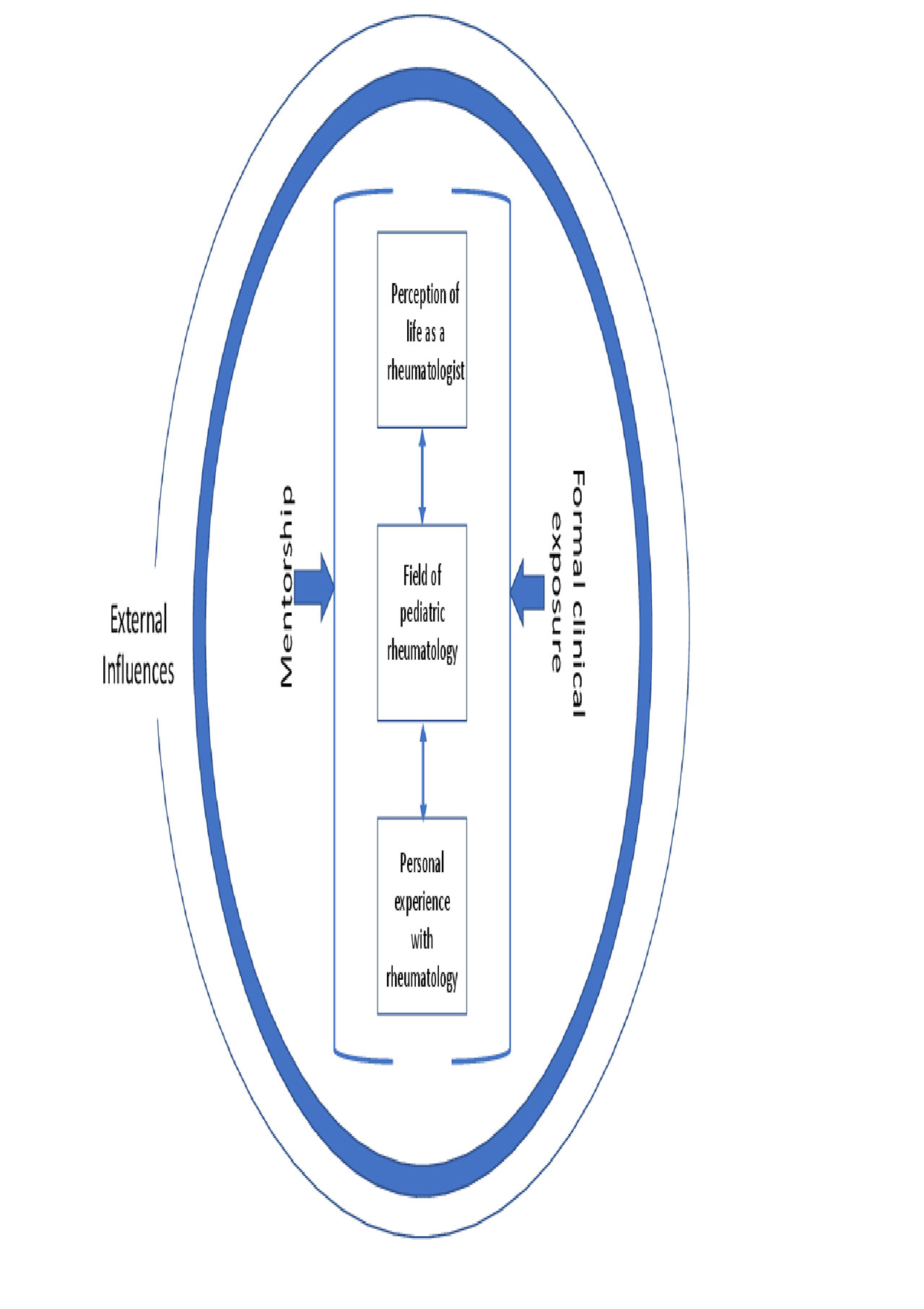Session Information
Date: Sunday, November 10, 2019
Title: Education Poster
Session Type: Poster Session (Sunday)
Session Time: 9:00AM-11:00AM
Background/Purpose: The American Academy of Pediatrics estimates that one-quarter of children with rheumatic disease live over 80 miles from the nearest pediatric rheumatologist. It has been suggested that half of these children receive care from an adult provider. Contributing to this mismatch between children with rheumatic disease and pediatric rheumatology providers is a relative dearth of pediatric residents who choose to enter pediatric rheumatology fellowship. From 2013-2017, between 28-50% of fellowship spots went unfilled each year. Little is known about the factors that influence pediatrics residents to consider a career in rheumatology.
Methods: Semi-structured interviews were conducted with 15 pediatrics residents who were accepted to the ACR Pediatrics Residents Program, which aims to expose pediatrics residents to the ACR Annual Scientific Meeting. Residents were re-interviewed after making their final specialty decision to understand the factors most influential in their decision. Interviews were transcribed and coded. Codes pertaining to influential factors were organized into an explanatory model.
Results: Most residents expressed their interest in pediatric rheumatology growing with formal clinical exposure during residency. Few residents had exposure to this field as medical students. Some residents reported only considering pediatric rheumatology as a career after completing a rotation during residency. Residents stated the evolving research, immunopathology, complex diseases, and long-term patient disease management were desirable aspects of the field. Some residents stated positively viewing pediatric rheumatology as focused on educating and teaching trainees and reported a collegial and friendly atmosphere. Some residents had mentors in pediatric rheumatology and explored research and career opportunities. Few residents mentioned salary, geography, perception of the field by others, or geographic limitations as barriers to considering pediatric rheumatology as a career.
Conclusion: Residents cite a variety of factors influencing their decision to consider pediatric rheumatology as a career. We organized these factors into a model with major influencing factors of 1) perceptions of life as a rheumatologist, 2) qualities inherent to the field such as long-term patient relationships and complex immunopathology and 3) personal experience with rheumatology being modified by formal clinical exposure and mentorship, with external influences having a peripheral, but often important, role. Pediatric rheumatology has aspects that are desirable to residents such as its culture, patient-family relationships, and disease processes. Facilitating exposure to pediatric rheumatology during medical school or earlier in residency may help facilitate interest in the field.
To cite this abstract in AMA style:
Pandya N, Sholevar C, Frasso R, Balmer D, Mehta J. A Qualitative Study of Factors That Influence Interest in a Career in Pediatric Rheumatology [abstract]. Arthritis Rheumatol. 2019; 71 (suppl 10). https://acrabstracts.org/abstract/a-qualitative-study-of-factors-that-influence-interest-in-a-career-in-pediatric-rheumatology/. Accessed .« Back to 2019 ACR/ARP Annual Meeting
ACR Meeting Abstracts - https://acrabstracts.org/abstract/a-qualitative-study-of-factors-that-influence-interest-in-a-career-in-pediatric-rheumatology/

